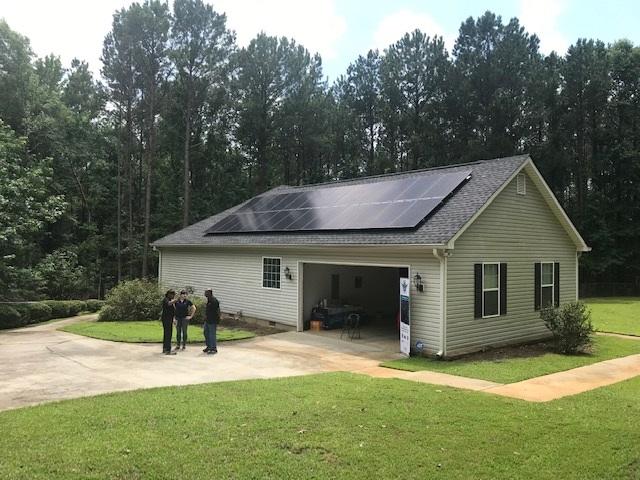
Yes, it is true that converting your home to solar power can potentially add value to your property. According to an analysis by Zillow released in April 2019, solar-powered homes sold for 4.1% more than comparable homes without solar power. This means that for a single-family home selling at the April 2023 median price of $820,000 in Greater Boston, it could translate into an additional $33,620.
Streamlined process makes it easier
In the past, solar power was considered a negative factor during the home buying process because of the cumbersome transfer process and lack of understanding. However, the process has been streamlined, and solar power is now often considered a bonus when advertising a property.
Reduced energy bills and incentives drive solar conversion
Most homeowners recoup the cost of a solar conversion within six to 10 years. The cost of a solar conversion can range from $20,000 to $100,000 or more, depending on the size and complexity of the system. The savings come in the form of reduced energy bills, as well as incentives such as tax credits and programs like the Solar Massachusetts Renewable Target (SMART) program, which provides incentive payments to homeowners who purchase solar systems.
Which homes are best for solar
It’s important to note that not all homes are suitable for solar panel installations. Homes with the best “solar access,” such as those with wide-open roofs without dormers, tend to benefit financially. Homes in densely wooded areas may have limited sun exposure and be less suitable for solar power. Additionally, homes with older roofs may require roof replacements before installing solar panels.
Types of solar panels
When it comes to solar panels, there are two main types: monocrystalline and polycrystalline. Monocrystalline solar panels are more efficient but tend to be more expensive, while polycrystalline panels are less expensive but slightly less efficient. The number of panels needed depends not only on the roof’s square footage but also on the homeowner’s expected energy consumption.
Solar options include ownership and lease options
Solar systems can be purchased outright for cash or with financing, or they can be leased. Leasing is a popular option for those who don’t plan to stay in their homes long enough to recoup the system’s cost or for homeowners who can’t take advantage of tax credits. The installation process typically takes between 60 and 90 days from initial consultation to completion.
Solar shingles
In addition to traditional solar panels, there are alternatives such as solar shingles, which are made from thin photovoltaic sheets that replace existing shingles. Solar shingles offer a more attractive look but are generally more expensive and require more complicated installation than traditional panels.
Other solar options
Community solar is another option available in many states, including Massachusetts. It allows homeowners to purchase discounted energy credits for power generated by a solar farm. This is a suitable choice for those who want the benefits of solar power without the cost of installing their own system or for properties that are not suitable for solar panels.
Selecting the best provider may start with the Initiative
If you’re interested in converting your home to solar power, it’s important to find a reputable contractor. The Mass Solar Initiative has vetted the top fifty solar companies in the area and works directly with five to help support a homeowners conversion to solar. Ask for referrals from friends or neighbors, check online reviews, and verify that the contractor is licensed and insured.
Take into consideration future energy needs
Lastly, it’s crucial to anticipate your future energy needs when designing your solar system. Factors like additional occupants in the house or the purchase of an electric car can increase your energy needs. It’s easier to design the system correctly the first time rather than having to make additions later on.

